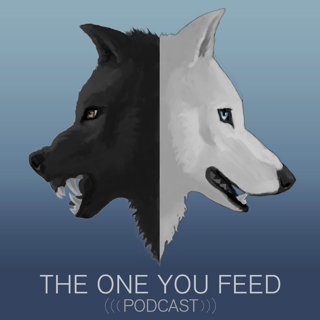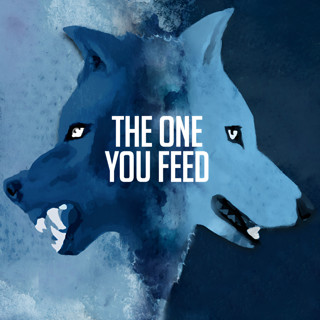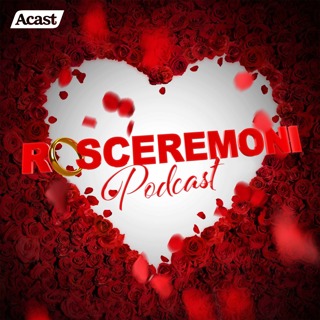
Jonathan Rottenberg: Depression and Evolution
This week we talk to Jonathan Rottenberg Jonathan Rottenberg is a leading researcher in the area of emotion and psychopathology, where he has focused on major depression. He is author of the book, The Depths: The Evolutionary Origins of the Depression Epidemic. The book is a new look at depression. Depression is discussed as an evolutionary adaptation that has gone wrong in our current culture. Depression is not thought of as a deficiency, or a lack of something. Instead he looks at depression through the lens of mood. He edited Emotion and Psychopathology: Bridging Affective and Clinical Science, published by the American Psychological Association. Since receiving his PhD degree from Stanford University, he has been at the University of South Florida, where he is an Associate Professor of Psychology and Director of the Mood and Emotion Laboratory. His work has been generously funded by the National Institutes of Mental Health and he has authored over 35 scientific publications, including many in the top journals in psychology and psychiatry. His work has received national and international media coverage, reported in outlets such as Science News, Scientific American, and the The New York Times. In This Interview Jonathan and I Discuss... The One You Feed parable. Depression as an evolutionary adaptation. Mood theory versus the defect theory of depression. That in our society incidence of depression is growing. The evidence for an evolutionary view of depression. How the purpose of depression is to help us disengage from activities that are not fruitful. How the defect theory of depression has no way to account for the growth of depression. How key human tendencies such as language and goal setting can exacerbate depression. The human tendency to make meaning out of everything and the role this can play in depression. The role of rumination in depression. Persistence of low mood is a key indicator in long term depression. His personal battle with depression. The three things that seed low mood: Events, Temperaments and Routines. The emotional set point theory. How living in a culture so obsessed with happiness is partially responsible for the epidemic of depression. Social media and the role it plays in depression. The inability to tolerate a little bit of depression can create a crisis where someone comes to question the whole path of their life. The goal of evolution is survival, not happinesss. Using medicine for depression as a step on the path. Having higher standards for depression sufferers. Using depression as a bridge to a better life. Three useful approaches to depression: meditation, cognitive therapy and acceptance. How these approaches all turn down the volume on the meaning making machine. Emotional context insensitivity. Depressed people react less to negative stimulus than non-depressed people. Anger can be a useful tool in getting out of depression. Depression can be caused by over attachment to goals, not under attachment. Jonathan Rottenberg Links Jonathan Rottenberg Home Page Buy The Depths on Amazon Came Out of the Dark Campaign Jonathan Rotttenberg on Twitter Jonathan Rottenberg on Facebook Some of our most popular interviews that you might also enjoy: Kino MacGregor Strand of Oaks Mike Scott of the Waterboys Todd Henry- author of Die Empty Randy Scott HydeSee omnystudio.com/listener for privacy information.See Privacy Policy at https://art19.com/privacy and California Privacy Notice at https://art19.com/privacy#do-not-sell-my-info.
23 Sep 201441min

Chris Grosso - The Indie Spiritualist
This week we talk to Chris GrossoChris Grosso is an author, independent culturist, spiritual aspirant, recovering addict, speaker, and professor with en*theos Academy. He writes for Origin magazine, Mantra Yoga + Health magazine and created the popular hub for all things alternative, independent, and spiritual with TheIndieSpiritualist.com. Chris continues the exploration with his debut book titled The Indie Spiritualist. In This Interview Chris and I Discuss...The One You Feed parable.How asking is the best way to get a yes.Having Danny Trejo pointing a steak knife at him. What the word spiritual means.Don't believe things on faith, try them out for yourself.Eddie Van Halen solo and Chris's mystical experience.How spiritual experience can happen anywhere, it does not have to be a "sacred" place.Chris Forbes and his love of Air Supply.No mud, no lotus.Becoming great because of our pain.Hiding from pain with drugs and alcohol.How his parents were his first teacher of compassion.Johnny Cash, punk rock, and hard-core music.Chris Grosso LinksThe Indie SpiritualistChris Grosso on TwitterChris Grosso on FacebookBuy The Indie Spiritualist Book Some of our most popular interviews that you might also enjoy:Kino MacGregorStrand of OaksMike Scott of the WaterboysTodd Henry- author of Die EmptyRandy Scott HydeSee omnystudio.com/listener for privacy information.See Privacy Policy at https://art19.com/privacy and California Privacy Notice at https://art19.com/privacy#do-not-sell-my-info.
16 Sep 201436min

Mini Episode 7- Positive Concentration
This week Eric discusses positive concentration techniques to counteract rumination.See omnystudio.com/listener for privacy information.See Privacy Policy at https://art19.com/privacy and California Privacy Notice at https://art19.com/privacy#do-not-sell-my-info.
13 Sep 20144min

Chris Guillebeau
[powerpress] This week we talk to Chris GuillebeauChris Guillebeau is a New York Times bestselling author and modern-day explorer.During a lifetime of self-employment that included a four-year commitment as a volunteer executive in West Africa, he visited every country in the world (193 in total) before his 35th birthday. Since then he has modeled the proven definition of an entrepreneur: “Someone who will work 24 hours a day for themselves to avoid working one hour a day for someone else.”Chris’s first book, The Art of Non-Conformity, was translated into more than twenty languages. His second book, The $100 Startup, was a New York Times and Wall Street Journal bestseller, selling more than 300,000 copies worldwide. His latest book, The Happiness of Pursuit, was just released today.Every summer in Portland, Oregon, Chris hosts the World Domination Summit, a gathering of creative, remarkable people with thousands in attendance. Chris is also the founder of Pioneer Nation, Unconventional Guides, the Travel Hacking Cartel, and numerous other projects. In This Interview Chris and I Discuss...The One You Feed parable.What is a quest?Finding adventure and purpose.How a quest add meaning to our lives.How effort can be it's own reward.How an emotional awareness of our mortality can be motivating.Developing a sense of urgency and opportunity.How misadventure builds confidence. The difference between a hobby, a passion and a quest. How depressed people tend to have more generalized goals.How quests don't always wrap up cleanly.Creating meaning in our lives.Eric's free ticket to World Domination Summit.Chris Guillebeau LinksChris Guillebeau HomepageWorld Domination SummitChris Guillebeau on TwitterChris Guillebeau Amazon Author PageThe Happiness of PursuitThe $100 StartupThe Art of Non-Conformity Some of our most popular interviews that you might also enjoy:Kino MacGregorStrand of OaksMike Scott of the WaterboysTodd Henry- author of Die EmptyRandy Scott HydeSee omnystudio.com/listener for privacy information.See Privacy Policy at https://art19.com/privacy and California Privacy Notice at https://art19.com/privacy#do-not-sell-my-info.
10 Sep 201430min

Mini Episode #6-Rumination
Eric explores rumination and how damaging it can be to our mental health.What is it?What's the difference between rumination and self reflection?Hebb's Law and the role it plays in rumination.How to escape rumination.Rough Transcript: A few weeks ago I was at one of the local meditation centers and people were doing walking meditation. There was a guy walking incredibly slow and everyone was backing up behind him because no one but a disabled snail can move at that pace. So people weren’t doing walking meditation they were standing and looking at this guy with a grouchy look on their faces.So I decided to stop him and explain that no one else could enjoy the meditation experience and it would be helpful if he could go just a bit faster.A few minutes later we sat back down for sitting meditation and my mind began racing. Should I not have said anything? Was I rude? Was this guy angry? So I decided that when we got up I would go over to him and explain myself and make sure we were good. Problem solved….except not for my mind. On and on it went re-playing the scene and thinking about the upcoming conversation.This is commonly know as rumination or brooding.Rumination is the compulsively focused attention on the symptoms of one's distress, and on its possible causes and consequences, as opposed to its solutions. Rumination is generally considered differently than self-reflection. Self-reflelction tends to offer new insights wheras rumination is just playing the same negative thoughts and feelings over and over.You will never plow a field by turning it over in your mind-Irish ProverbThe challenge with rumination (or brooding) is that it feels like we are doing something about the issue or problem by continuing to think about it and ponder it. However rumination is extremely destructive and has been strongly linked to deep depression and anxiety. In fact a The UK's biggest ever online test into stress, undertaken by the BBC's Lab UK and the University of Liverpool, has revealed that rumination is the biggest predictor of the most common mental health problems in the country.The tricky thing is that worry and rumination can seem essential part of coping effectively. The idea of letting go of rumination and worry can be frightening. The ironic thing is that rumination tends to increase anxiety and effectiveness in problem solving goes down as anxiety increases.In addition a mind that ruminates becomes more likely to continue to do it. We have talked on the show about how we create pathways in our brain that become every easier to fall into the more reengage them. This is not a fanciful idea or silly positive thinking. Neurosccience has something called Hebbs Law. The phrase, “neurons that fire together wire together” The meaning of Hebb’s axiom is that each experience we encounter, including our feelings, thoughts, sensations, and muscle actions becomes embedded in the network of brain cells, that produce that experience. Each time you repeat a particular thought or action, you strengthen the connection between a set of brain cells or neurons.Think of it like taking a walk in the woods. Your thoughts are like hikers. The first hiker has to blaze her own trail. But over subsequent trips a trail gets worn in to the ground and more and more hikers will take that trail. The more hikers that take the trail the clearer it becomes and the more likely that future hikers will take it. It takes much more energy to go off the trail. Our brains work the same way, there is a need to conserve energy. Our brains use about 25% of the body’s total energy so the brain is going to default to the neural circuits that take less energy.So it’s important to determine whether we are ruminating or problem solving. If the thinking does not lead to a course of action within a reasonable period it is probably rumination.Back to my story above, the first few minutes while I thought about the situation and came up with a plan of action was useful self- reflection and problem solving. Everything after that was useless rumination.in our interview with Dan Harris he talks about the difference between useless rumination and what he calls constructive anguish . The question he asks himself is “Is this useful?” If it doesn’t lead to meaningful effective action then it is useless rumination.If we are ruminating the most important thing is to come to a hard stop. As soon as the ruminative thought begins – that one that doesn’t lead to new insights but is the same path – you immediately have to distract yourself with something that requires concentration. The key at this point is to stop the cycle. We have to stop the brain cold, we need to stay off the path. So anything that distracts us and requires concentration will work. Play a game, solve a puzzle, anything is better than the rumination.So a quick summary, brooding is the process of playing negative thoughts and emotions over and over. It is also extremely destructive. It is a key indicator of depression, anxiety, high blood pressure and heat disease. We need to interrupt the brooding as soon as it begins. The best way to do this is to immediately switch the brain to something that requires concentration.Some of our most popular interviews that you might also enjoy:Kino MacGregorStrand of OaksMike Scott of the WaterboysTodd Henry- author of Die EmptyRandy Scott HydeSee omnystudio.com/listener for privacy information.See Privacy Policy at https://art19.com/privacy and California Privacy Notice at https://art19.com/privacy#do-not-sell-my-info.
8 Sep 20146min

Mishka Shubaly
This week we talk to Mishka ShubalyOur guest today is author Mishka Shubalay. After receiving an MFA from Columbia University, Mishka promptly quit writing to play music. He lived out of a Toyota minivan for a year, touring nonstop, and has shared the stage with artists like The Strokes, The Yeah Yeah Yeahs and The Decemberists.His Kindle Singles for Amazon have all been bestsellers. He writes true stories about drink, drugs, disasters, desire, deception and their aftermath. The Long Run is Mishka’s mini-memoir and details his transformation from alcoholic drug abuser to sober ultrarunner. His latest Kindle single is called Of Mice and Me and details him finding an orphaned baby mouse and the life lessons it brought to him.Also at the end of the interview we have a pre-release of a song from Mishka’s forthcoming record. In This Interview Mishka and I Discuss...The One You Feed parable.Watching the wolves battle since he was a kid.Nihilism and self defeating behaviors.How he celebrated his 5 years of sobriety.The ebb and flow of life.Remembering and forgetting our life lessons.How running is his meditation and prayerDoing the hard thing and embracing the challenges remind him that he wants to be alive. How its harder to train for six weeks than to run 10 miles at once. That smaller changes can be more difficult to maintain.Changing the default posture of our mind.How his mantra went from Fuck It to Try Every Day.Success being built on a series of failures.Learning to recover from our mistakesExtending the benefit of doubt to ourselves.The negative voice of the bad wolf.How we won't recover from addiction unless it is the most important thing in the world.His fear of AA.How there are no magic bullets.His public promise to attend an AA meeting.How it's worth trying anything once, expect maybe crystal meth.Our communal desire for having a lot of pain over a long period of time versus a brief intense pain.How following our dreams is not always the right approach.Playing music for the love of it.How the only thing that makes us happy is happiness.How getting everything we want doesn't always make us happy.Posting a picture of the The Strokes guitar player's ass all across Manhattan.Mishka Shubaly LinksMishka Shubaly Homepage Misha Shubaly Amazon Author pageMishka Shubaly on TwitterOf Mice and MeThe Long RunBeat The Devil Some of our most popular interviews that you might also enjoy:Kino MacGregorStrand of OaksMike Scott of the WaterboysTodd Henry- author of Die EmptyRandy Scott HydeSee omnystudio.com/listener for privacy information.See Privacy Policy at https://art19.com/privacy and California Privacy Notice at https://art19.com/privacy#do-not-sell-my-info.
2 Sep 201449min

Mini Episode #5- An Open Letter to the Jackass Who Left Us a 1-Star Review
Eric starts to respond to a negative review and uses as it a way to explore the negativity bias and steps to work with it. Some of our most popular interviews that you might also enjoy:Kino MacGregorStrand of OaksMike Scott of the WaterboysTodd Henry- author of Die EmptyRandy Scott HydeSee omnystudio.com/listener for privacy information.See Privacy Policy at https://art19.com/privacy and California Privacy Notice at https://art19.com/privacy#do-not-sell-my-info.
31 Aug 20148min

Jonathan Fields
Jonathan Fields describes himself as a father, a husband, a maker and a man who cares deeply about, loves and admires those closest to him and is humbled and grateful for the opportunity to create, to connect and to serve.He is the creator of The Good Life Project which is an audio and video podcast that was one of the inspirations for our show. He is also the author of Uncertainty: Turning Fear and Doubt into Fuel for Brilliance and Career Renegade.He is also the creator of the upcoming Good Life Project Summer Camp which I will be attending. In This Interview Jonathan and I Discuss...The One You Feed parable.Zooming out to get the meta view.How a good life isn't a place at which you arrive but a lens that you see through.The danger of "just a little bit more".Contentment versus striving.Appreciating what we have while taking action to achieve more.The difference between aspire and desire. Destroying possibility by clinging to certainty. Spending more time thinking about today than our legacy."The path to becoming is littered with the remains of those who missed the grace of being".Missing the present by being too focused on the future.Missing the little moments while hoping for the bigger moments.How we are not good at understanding what will make us happy.The importance of being around people you love.What a Good Life means to Jonathan-contribution, connection, vitality.Comparing our insides with other peoples outsides.The difference between meaning and happiness.Creating more meaning in our lives.How most of us don't know what we want to do with our lives and figure it out along the way.The paralyzing nature of heavy questions.How the person we are looking for is the person we are.Chipping away all the gunk that covers up who we are.Feeling like we have to have all the answers.Jonathan Fields LinksThe Good Life Project HomepageJonathan Fields HomepageJonathan Fields Ted TalkUncertainty: Turning Fear and Doubt into Fuel for BrillianceCareer RenegadeThe Good Life Project Creed Some of our most popular interviews that you might also enjoy:Kino MacGregorStrand of OaksMike Scott of the WaterboysTodd Henry- author of Die EmptyRandy Scott HydeSee omnystudio.com/listener for privacy information.See Privacy Policy at https://art19.com/privacy and California Privacy Notice at https://art19.com/privacy#do-not-sell-my-info.
26 Aug 201442min






















